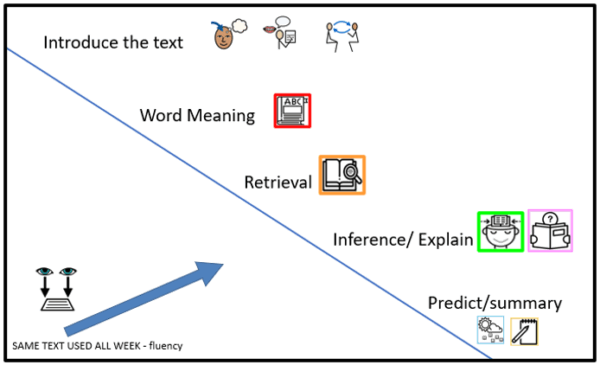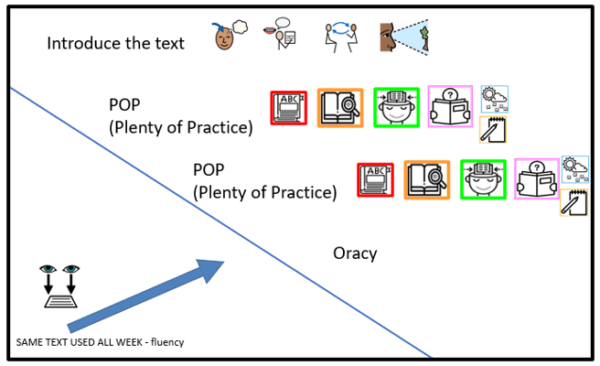Intent
At Desford Community Primary School, our intent for reading is to foster a lifelong love of literature that promotes a deep understanding of reading as a critical life skill. We aim to equip all our students with the ability to decode, comprehend, and critically engage with texts, ensuring they are prepared for success in all areas of their education and beyond.
Our reading curriculum is carefully designed to:
- Promote fluency and comprehension: We want every child to read confidently and fluently, with a focus on understanding and engaging critically with a range of genres and texts to support strong vocabulary development.
- Cultivate a passion for reading: By providing access to a diverse array of texts, we endeavour to spark pupils’ interest and encourage a culture of reading for pleasure both in and out of school.
- Support inclusivity: Our reading strategies and resources are tailored to meet the needs of each child, ensuring that all learners – regardless of their starting points – can thrive and enjoy success in reading


